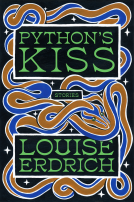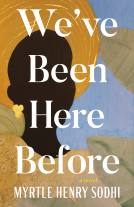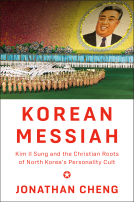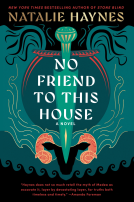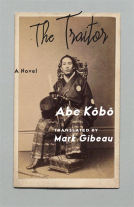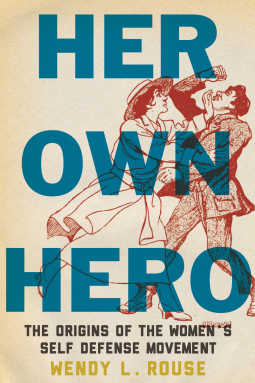
Her Own Hero
The Origins of the Women’s Self-Defense Movement
by Wendy L. Rouse
This title was previously available on NetGalley and is now archived.
Send NetGalley books directly to your Kindle or Kindle app
1
To read on a Kindle or Kindle app, please add kindle@netgalley.com as an approved email address to receive files in your Amazon account. Click here for step-by-step instructions.
2
Also find your Kindle email address within your Amazon account, and enter it here.
Pub Date Aug 08 2017 | Archive Date Oct 18 2017
Description
The surprising roots of the self-defense movement and the history of women’s empowerment.
At the turn of the twentieth century, women famously organized to demand greater social and political freedoms like gaining the right to vote. However, few realize that the Progressive Era also witnessed the birth of the women’s self-defense movement.
It is nearly impossible in today’s day and age to imagine a world without the concept of women’s self defense. Some women were inspired to take up boxing and jiu-jitsu for very personal reasons that ranged from protecting themselves from attacks by strangers on the street to rejecting gendered notions about feminine weakness and empowering themselves as their own protectors. Women’s training in self defense was both a reflection of and a response to the broader cultural issues of the time, including the women’s rights movement and the campaign for the vote.
Perhaps more importantly, the discussion surrounding women’s self-defense revealed powerful myths about the source of violence against women and opened up conversations about the less visible violence that many women faced in their own homes. Through self-defense training, women debunked patriarchal myths about inherent feminine weakness, creating a new image of women as powerful and self-reliant. Whether or not women consciously pursued self-defense for these reasons, their actions embodied feminist politics. Although their individual motivations may have varied, their collective action echoed through the twentieth century, demanding emancipation from the constrictions that prevented women from exercising their full rights as citizens and human beings. This book is a fascinating and comprehensive introduction to one of the most important women’s issues of all time.
This book will provoke good debate and offer distinct responses and solutions.
Available Editions
| EDITION | Other Format |
| ISBN | 9781479828531 |
| PRICE | $98.00 (USD) |
| PAGES | 288 |
Links
Average rating from 17 members
Featured Reviews
This is well researched and written. I had no idea about a vast majority of the subjects Rouse presented. Of particular personal interest was th chapter on self defense during women's sufferage. I will be adding to this to my personal library upon its publication.
 Theresa J, Reviewer
Theresa J, Reviewer
Wendy Rouse’s Her Own Hero goes deep into the Progressive Era and describes how industrialization, racism, xenophobia, and a fear of the decline of the Anglo race led to a promotion of physical culture and a sort of hypermasculinity. At the same time, upper- and middle-class white women were moving into the public sphere and wanted in on physical culture too, and had ways of justifying their participation in “manly arts” such as boxing and self-defense both by appealing to the rules of respectable femininity (“It cures hysteria!”) and circumventing gender norms entirely.
Rouse makes clear that racism was a significant component in shaping women’s participation in martial arts and boxing. From the fear of Anglo population decline to Yellow Peril to the differences in how black women and white women were treated/harassed in the public sphere, racial politics often played a part in whether or not women would get to participate in martial arts and even what type of martial arts they could learn. However, at least for white women, physical empowerment led to more opportunities to be visible in the public sphere, which eventually translated to political empowerment and the right to vote.
Now that we live in a world where athletes like Serena Williams and Ronda Rousey and Mia Hamm are household names and women’s self-defense courses can be found at even the tiniest of suburbs, it almost seems quaint that women were once discouraged from physical activity. But though this book focuses on the Progressive era, so many of the attitudes about femininity and fears of racial “others” are still prevalent even in 2017. The more things change, the more they stay the same.
This is a thoroughly researched academic book, well-suited for people who really want to dig deep into the history of women’s participation in combat sports. It also offers a really fascinating look at how gender norms are influenced by race, and how these old narratives about women in sports still linger today.
 Sarah W, Reviewer
Sarah W, Reviewer
This is an interesting nonfiction book on the history of the women's self-defense movement in the US. Reading about how and why women decided to become their own protectors was fascinating, giving me a better idea of the women's suffrage movement of the time and women's life experience in general. I would definitely recommend this book to anyone looking to learning more about women's life during the era in general, and the women's movement in particular.
Readers who liked this book also liked:
James McBride
General Fiction (Adult), Historical Fiction, Literary Fiction
Pelumi Olatinpo
Essays & Collections, Multicultural Interest, Politics & Current Affairs
Natalie Haynes
General Fiction (Adult), Historical Fiction, Literary Fiction






